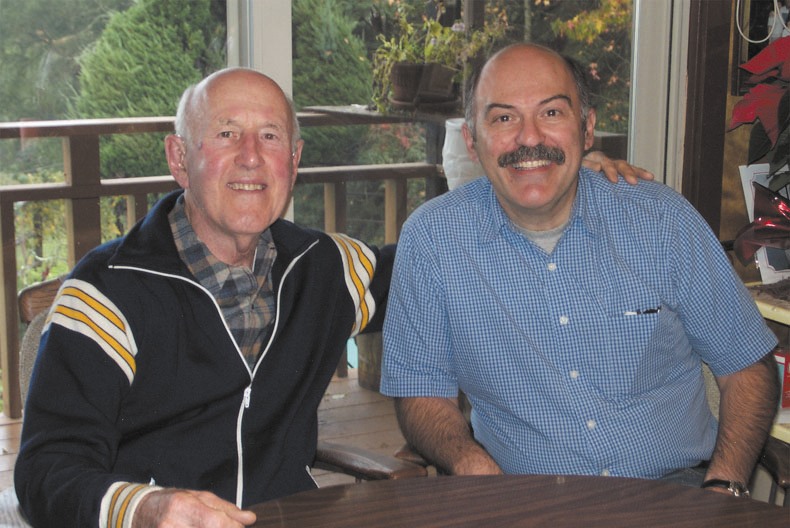Barlow Der Mugrdechian
Advisor
 Mr. Ray Parnay of Sebastopol, California, has made a donation of a collection of valuable 19th and 20th century printed books in Armenian. The bulk of the collection consists of rare printed books from the Mekhitarist Congregation in Venice.
Mr. Ray Parnay of Sebastopol, California, has made a donation of a collection of valuable 19th and 20th century printed books in Armenian. The bulk of the collection consists of rare printed books from the Mekhitarist Congregation in Venice.
Mr. Parnay donated the collection to California State University, Fresno because of the large Armenian community in the area and the fact there is an Armenian Studies Program. Mr. Parnay believes that the collection would be best utilized at Fresno State.
Mr. Parnay is a retired District Supervisor and Principal in the Forestville Union School District located in Sonoma County. He has an extensive background in educational administration and teaching, having been a teacher for six years, an elementary and secondary school principal for five years, and district superintendent and principal for the last nineteen years of his career.
Mr. Parnay is deeply committed to public education and has written and read widely on the subject. He is the parent of three children.
The story of how the collection was assembled involves his father and uncle. Mr. Parnay’s family name was originally Yedi-kardashian. When his father, Mardig, went into the Oriental business in Berkeley in 1906, two blocks from Sather Gate, he could not afford a sign that long, so he changed the family name to Parnay.
Actually his uncle S. Y. Parnay (Parnag), who died before Mr. Ray Parnay was born, changed the last name to Parnay in the early 1900s for whatever his reason.
Parnag was born in Kostamanou on the Black Sea in Turkey circa 1885. The family later moved to Kayseri in central Turkey. He emigrated to the U.S. circa 1900 and settled in Pasadena. He worked for the U.S. Forest Service for a time, and herein is a wonderful story. In 1905 when Ray Parnay’s father emigrated to the U.S., he lived with Parnag and his wife, Hripsime, until he finished high school.
Parnag and his brother Mardig spent a summer in the mountains of New Mexico on a reforestation project. One morning as they were cooking flapjacks over an open fire in their encampment, a man on horseback approached and asked if he could join them for breakfast. It was Teddy Roosevelt! (the original environmental president).
Parnag was a highly educated and brilliant man. He was a virtuoso violinist, and therein, according to Ray Parnay, lies another delightful story. He (Parnag), Hripsime, and their young daughter were camped out in Yosemite. It was evening and they were sitting around the campfire. Parnag was playing “Woodland Sketches,” by American composer Edward MacDowell, a lovely piece of music, and many people had gathered to listen. When he had finished, a man approached out of the shadows and said, “ You played that very well. By the way, I wrote it.”
Parnag also had a marvelous singing voice and was a member of at least one choral group. As a nurseryman in Pasadena, he hybridized the popular groundcover, Cotaneaster parneyi. He also had a rose named after him.
Both Parnag and Hripsime were highly intellectual and collected many books in addition to those he brought from the old country. He was extremely interested in the history of the Armenian massacres, and he and his brother lost their mother and a sister to one of the forced marches into the desert at the hands of the Turks.
Some of the Armenian books in the collection were also collected by Ray Parnay’s father, Mardig. Sadly, Parnag and Hripsime lost their daughter to meningitis at the age of nine. Even more sadly, Parnag died of consumption at the age of only forty. Hripsime grieved the rest of her life.
Hripsime passed the collection of books on to Mardig before she passed away. In 1969, when Ray Parnay’s father died, his belongings were brought to Sebastopol, and the books were stored in the garage thereafter. “I always entertained the idea that somehow I must get these books into the appropriate hands at some point,” said Mr. Ray Parnay. “I am now 77 years old, in failing health, and I realized that I must act promptly, or who knows what might happen to this treasury of Armenian history and culture. By the way, I am only half Armenian, and the Armenian language unfortunately was not spoken in our home.”
The Armenian Studies Program thanks the Parnay family for their important donation of books to the Program and the University.
 Hye Sharzhoom Armenian Action
Hye Sharzhoom Armenian Action